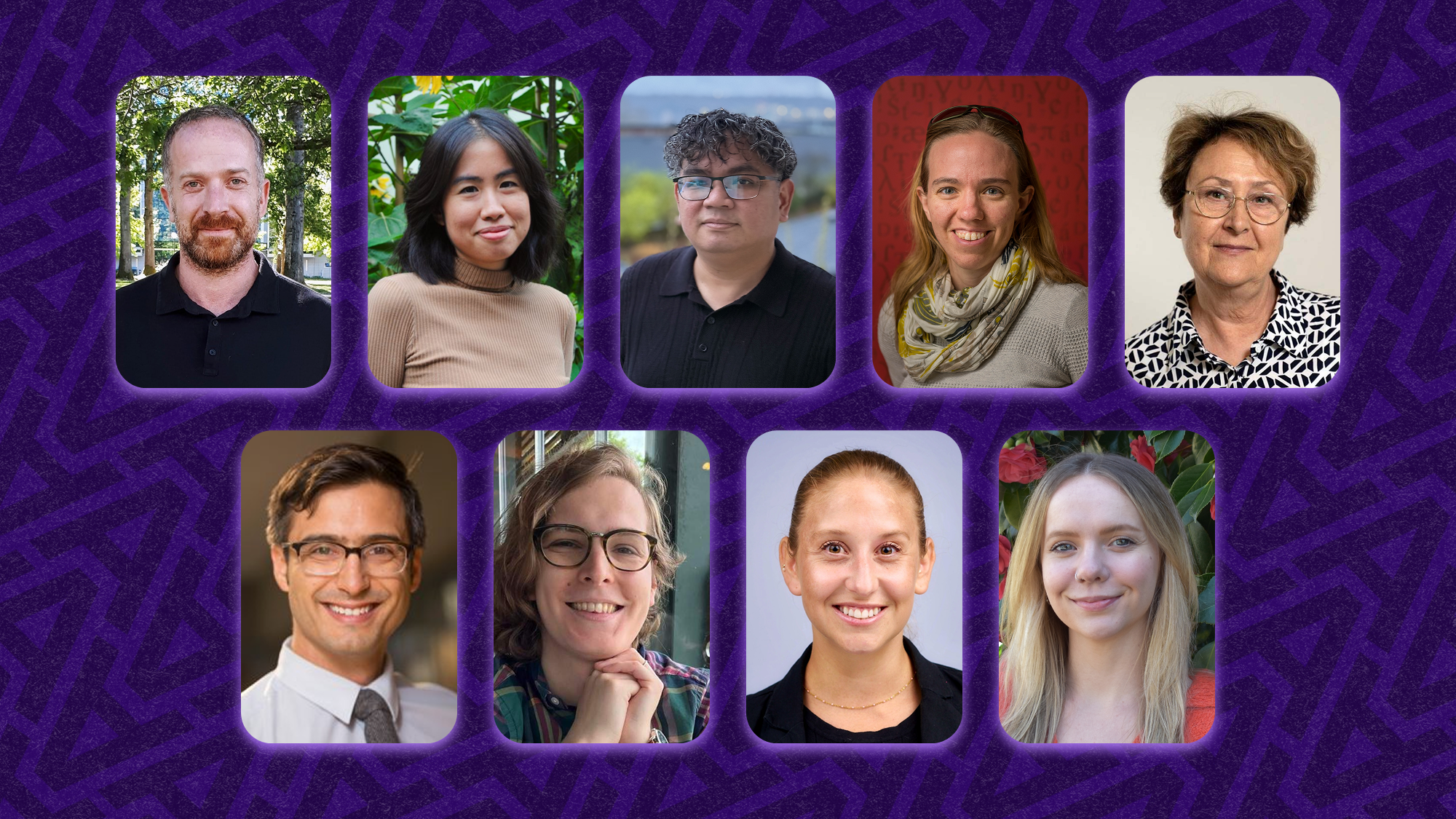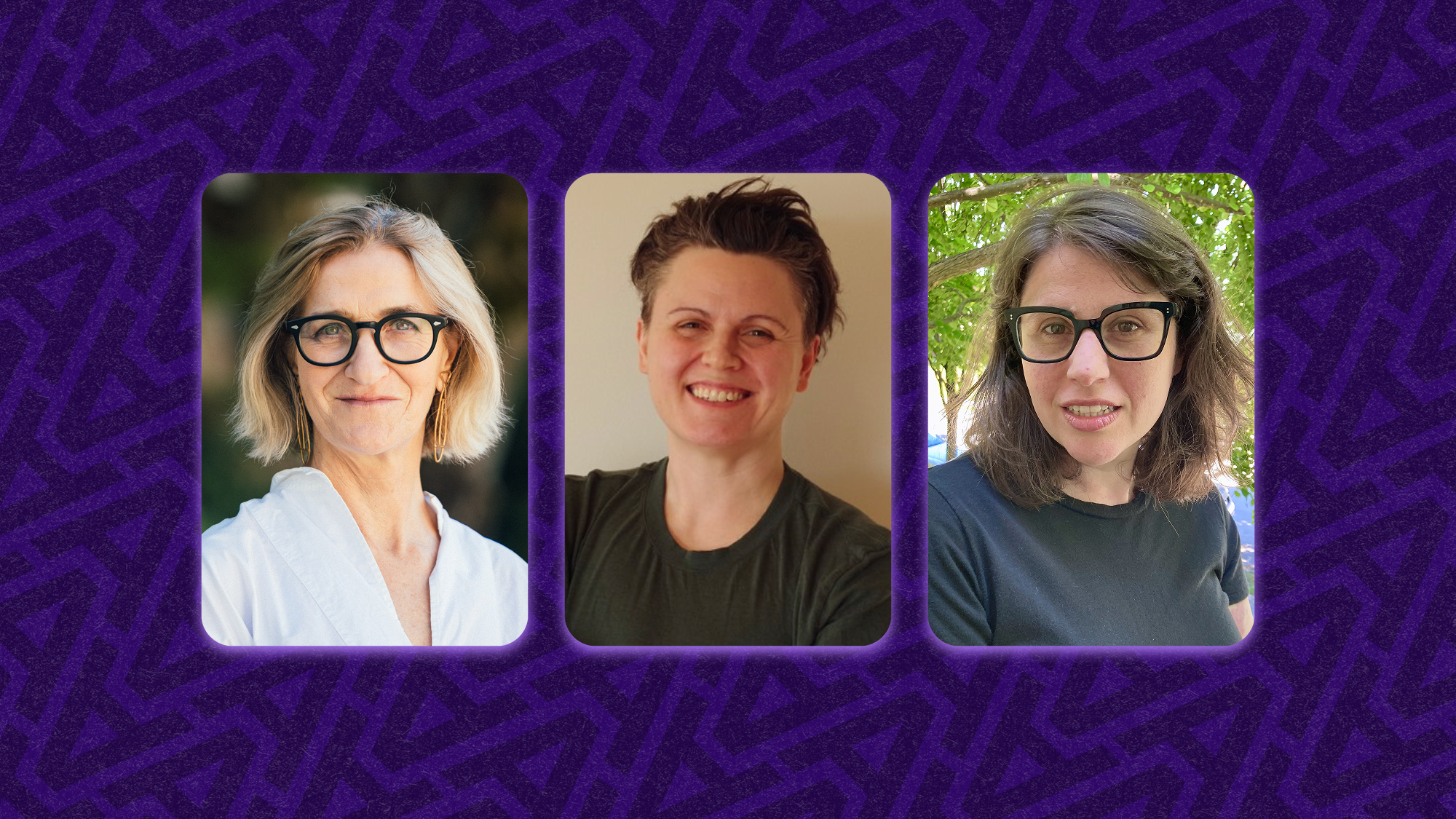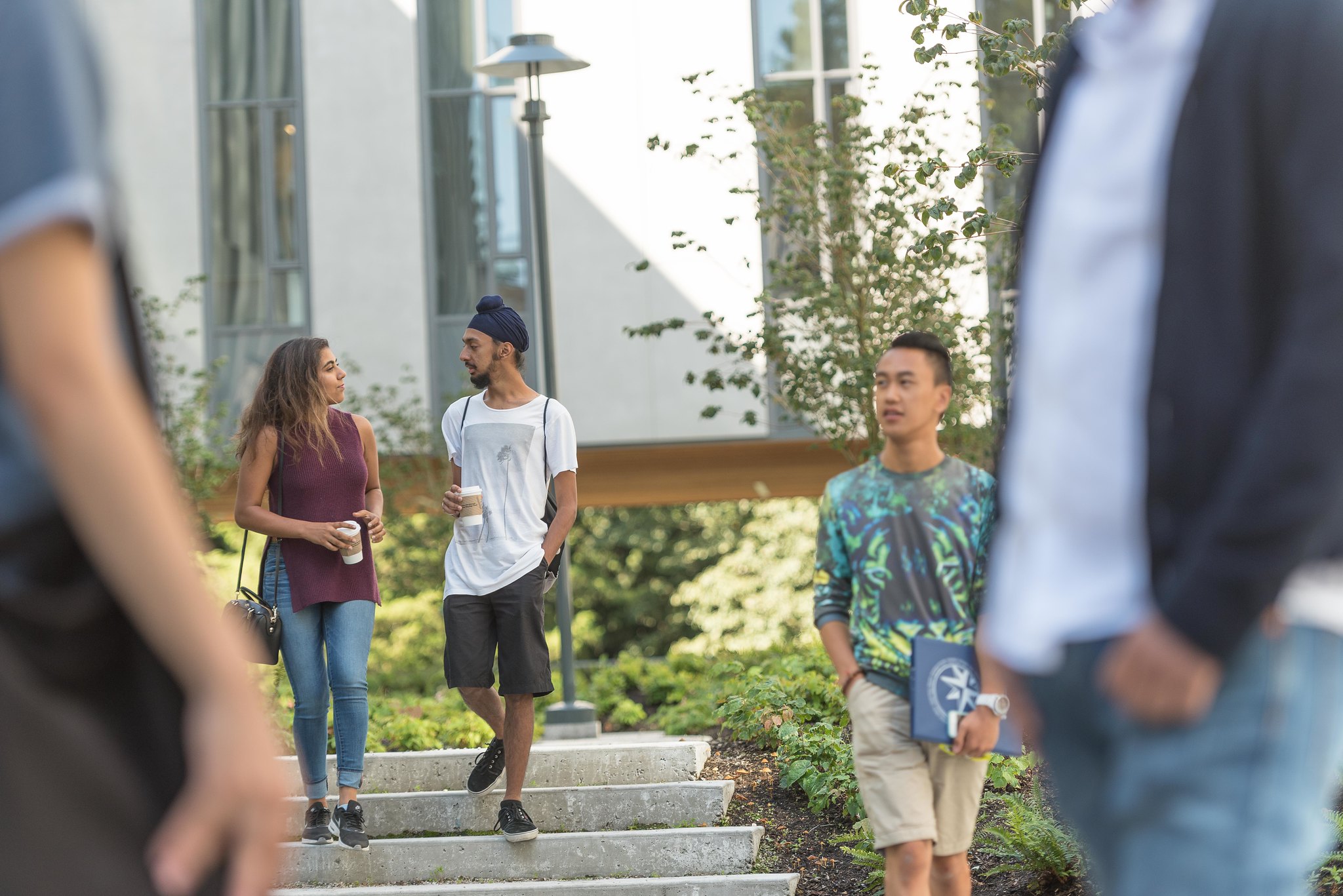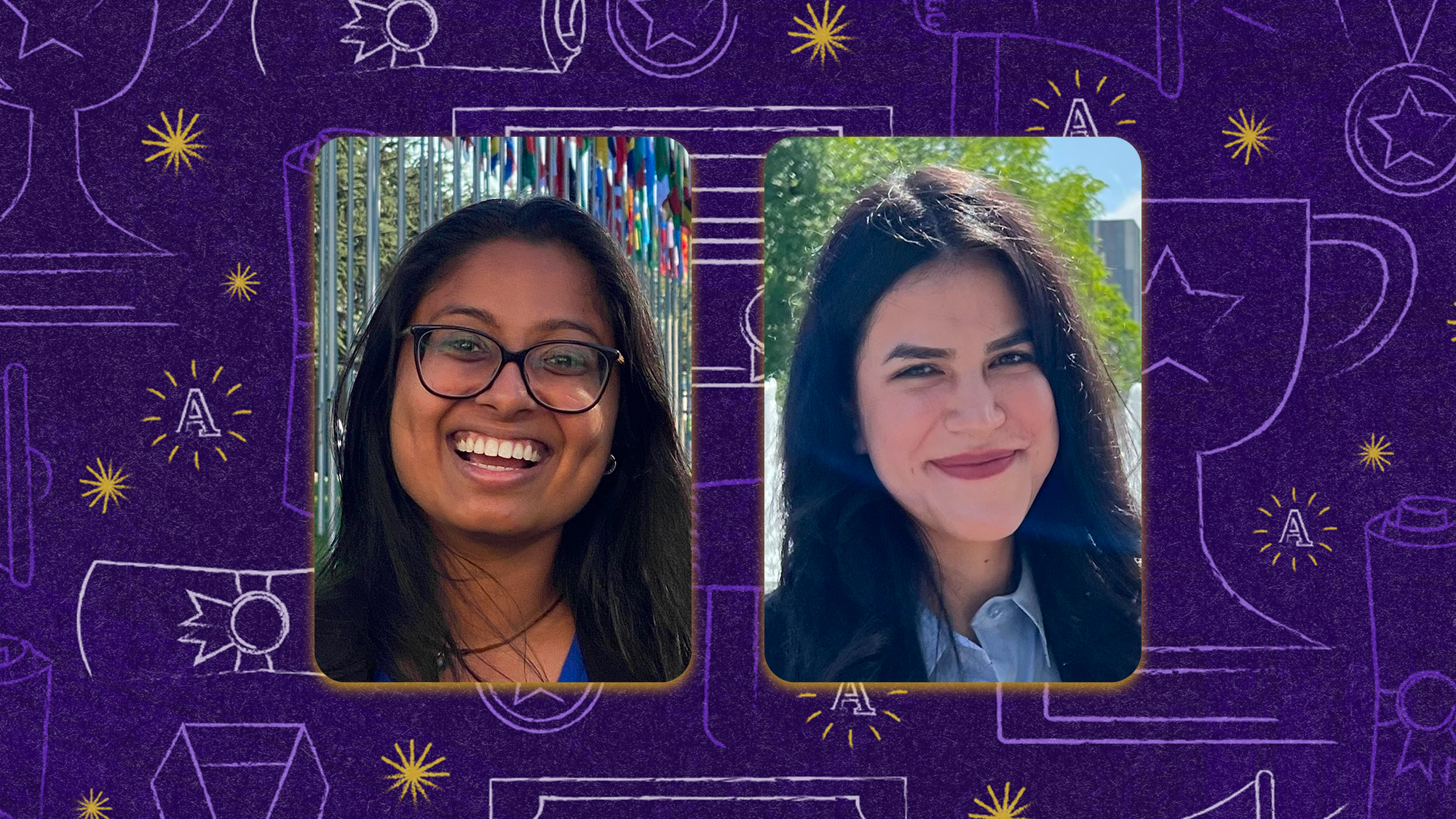

Ambihai Akilan and Maryam Begzada are recipients of the 2025 Outstanding Leader in the UBC Community and Beyond Award for their dedication to community change at UBC and beyond our campus.
Ambihai Akilan, Human Geography


As Editor-in-Chief of the Tamil Academic Journal, Ambihai has led a 15-person editorial team to expand access to peer-reviewed research, mentor emerging scholars, and build partnerships. Under her leadership, the journal has hosted international conferences and taken bold steps toward decolonizing academic publishing.
Ambihai has also supported student research as an editor for the Trail Six Undergraduate Journal of Geography, done advocacy work with People for Equality and Relief in Lanka (PEARL), and presented at international forums including the United Nations Human Rights Council, Global Affairs Canada, and the U.S. Department of State.
What student leadership opportunity had the most impact on you during your time at UBC?
The student leadership opportunity that had the most impact on me during my time at UBC was my work with the Tamil Academic Journal, where I eventually became Editor-in-Chief. I first joined as an editor in my first year, but my role evolved into spearheading efforts to decolonize academic publishing. I began critically examining traditional publishing structures and advocating for more inclusive and accessible approaches. These discussions led me to explore new compensation models, mentorship programs, and non-traditional publication and archival formats, ultimately redefining what an academic journal could, and should, be. Watching the Tamil Academic Journal grow into a globally connected, collaborative space for scholarship as resistance and an application of my learning has been one of my proudest and most meaningful accomplishments during my time at UBC.
What does it mean to be a great Arts leader?
Leading with empathy, curiosity, and a commitment to collective growth. It means being willing to challenge existing systems, advocate for equity, and work alongside others toward a shared vision. Above all, it’s about leaving things better than you found them, building infrastructure and opportunities that will continue to support and uplift others long after you’ve moved on.
What advice would you give to incoming UBC Arts students?
I’d say don’t be afraid to stumble through things. It’s easy to get caught up in trying to get everything right, but sometimes the best learning happens when you’re figuring things out as you go—it’s all a part of the journey!
What did you learn about yourself at UBC?
I discovered a deeper love for learning. UBC gave me the space to appreciate how much there is to explore, both academically and personally. UBC has taught me that learning isn’t just about grades or assignments; it’s about continuously challenging yourself, expanding your perspectives, and growing in unexpected ways.
Maryam Begzada, Political Science
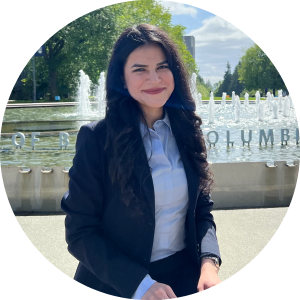

Maryam has a wealth of advocacy experience, championing women’s rights and Indigenous engagement near and far. As a student researcher, Maryam has supported the preservation and promotion of Afghan scholars’ work as they fled Afghanistan, and she has done culturally sensitive work supporting UBC Press’ RavenSpace Publishing documentation and outreach.
Maryam has worked with several Faculties and units at UBC. She has also worked as an interpreter, supporting UNICEF initiatives in Kabul and supporting refugee children’s engagement in STEM for MOSAIC in Vancouver.
What student leadership opportunity had the most impact on you during your time at UBC?
Working with Dr. Jenny Peterson as a full-time Student Researcher on a collaborative project with UBC and Carleton University. This project aimed to help at-risk Afghan scholars and students who had been forced to flee Afghanistan, establish new intellectual homes in Canada.
My research focused on enhancing knowledge network management for at-risk scholars and students fleeing Afghanistan, drawing on best practices from the business sector to preserve low-resource communities’ voices and amplify their intellectual contributions on a global scale. My goal was to create a resilient framework that would support and sustain scholars’ work in the face of displacement and adversity.
What does it mean to be a great Arts leader?
To be a great Arts student leader means fostering an inclusive environment where creativity and collaboration thrive. It’s about inspiring others with empathy and encouraging meaningful contributions to our communities and beyond.
What advice would you give to incoming UBC Arts students?
Say yes to every opportunity and experience that comes your way, even if it doesn’t seem immediately connected to your long-term goals. You never know the unexpected connections, skills, or insights you’ll gain along the way that can open doors to bigger opportunities down the road. Often, the most valuable experiences come from stepping outside your comfort zone and embracing new challenges. Each opportunity, no matter how small it may seem at the time, can contribute to your personal growth, help you build a diverse network, and shape the direction of your future in ways you can’t anticipate right now. Be open, stay curious, and trust that everything you do will add to your journey.
What did you learn about yourself at UBC?
I discovered that I thrive on making connections and staying engaged in meaningful work. I truly enjoy learning, being busy, and contributing to projects, even when facing personal challenges. I’ve learned that staying active and immersed in my work helps me navigate those challenges and keeps me motivated. UBC has been the perfect place for this, offering endless opportunities and experiences that pushed me to grow both personally and professionally. It’s been a transformative experience where I’ve not only expanded my knowledge but also learned to embrace every opportunity as a stepping stone for growth.
